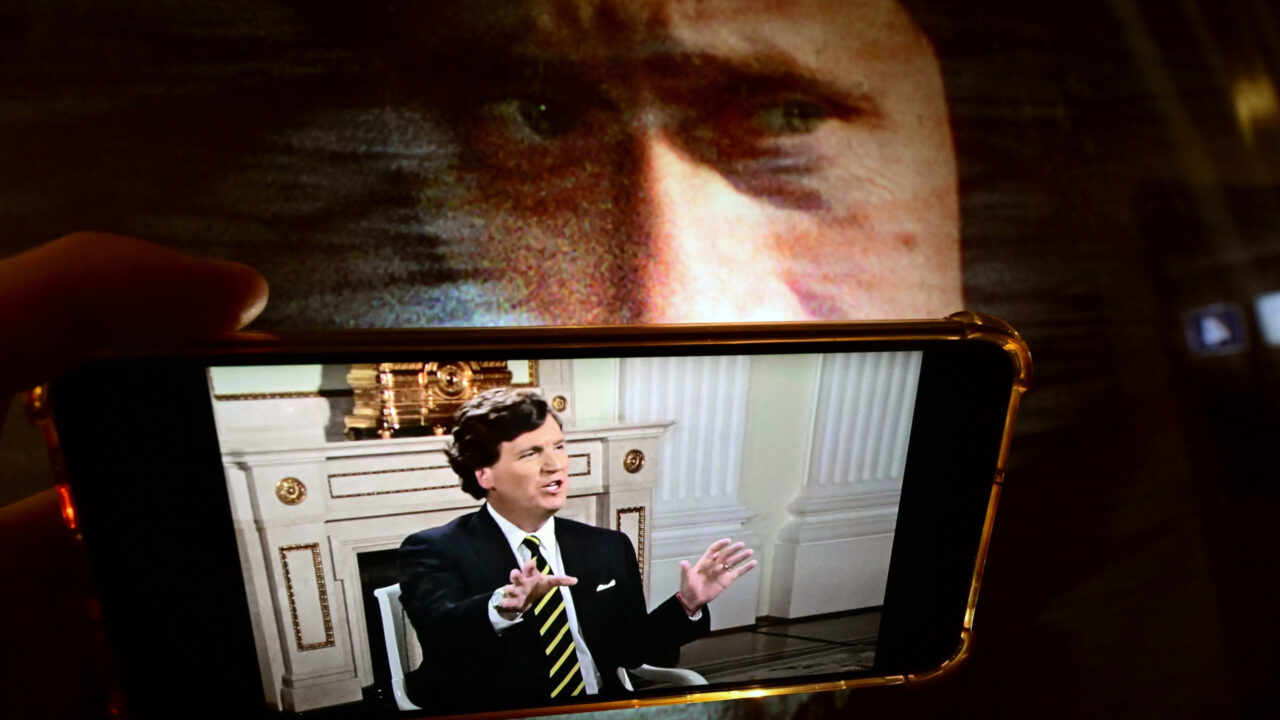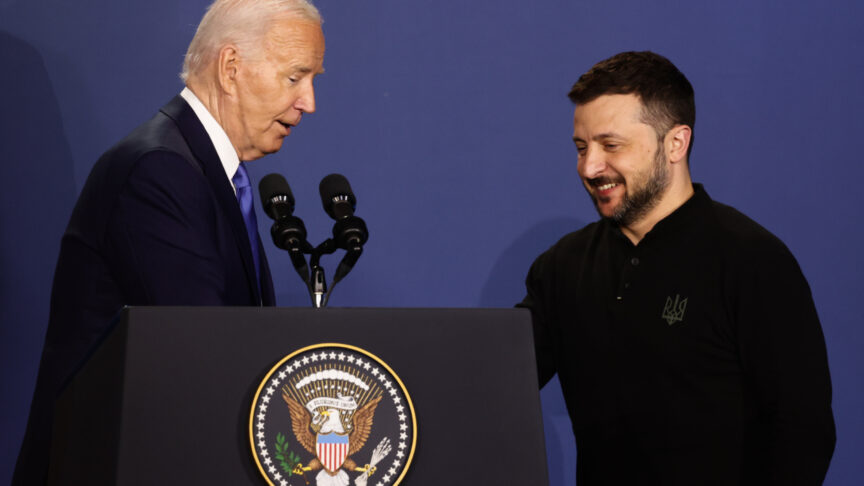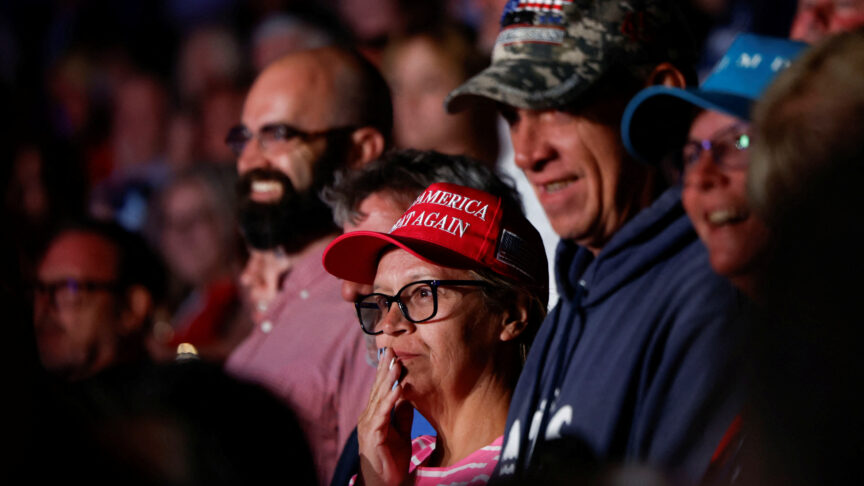Revanchism at prime time: Vladimir Putin, Tucker Carlson, and Ukraine
Vladimir Putin’s ramblings to a compliant Tucker Carlson exposed the true motivations for Russia’s war against Ukraine
Tucker Carlson’s interview with Vladimir Putin continues to reverberate around the media landscape: most recently, news that the Kremlin has instructed Russian schools to show it “to teach children how to identify reliable information”. It was certainly a controversial move for the hard-right talk show host to fly from Miami to Moscow and give Putin the opportunity to talk unopposed for two hours. But, at the end of the day, maybe we should thank Carlson for bringing much-needed clarity to why Putin started his aggression against Ukraine and what he is really aiming for.
Before February 2022, the Kremlin’s justificatory propaganda focused on narratives such as alleged violations of the rights of inhabitants in Donbas, Kyiv’s inadequacies in fulfilling the Minsk agreements, NATO enlargement after 1997, and fantasies of an imminent incursion by the alliance into Ukraine. These narratives have barely changed in the two years since Putin began his all-out war.
But, in his interview with Carlson, Putin brushed all that aside. His monologue spanned a thousand years and laid bare what the war was all about to him: Ukraine had never existed, and any attempt to pretend otherwise was simply wrong and unacceptable. It was not about NATO or Donbas or any other more recent issue – it was simply about the fact that Ukraine had no right to exist.
Putin’s monologue spanned a thousand years and laid bare what the war was all about to him: Ukraine had never existed, and any attempt to pretend otherwise was simply wrong and unacceptable
History is indeed a dangerous subject; it can be used and misused. And Putin set out his own version of how the forces of change have swept over the plains of eastern Europe since the Vikings helped set up the first state structures in old Novogorod and Kyiv, and Rus rule was established over these vast areas. The principality of Muscovy came much later, and took still centuries more to turn into Russia.
It is of course true that the Tsarist Russian empire during the 18th and 19th centuries gradually conquered many of these areas, Helsinki and Warsaw included, before it all collapsed in the chaos of the first world war. In 1914, there really was no Ukraine or Belarus; nor were there any Baltic states: all was under the Tsar. Putin makes no secret of his wish to recreate the sort of centralised ‘great Russian state’ that existed in those days.
But that Tsarist empire was a prison of nations. As soon as it crumbled and collapsed, one nation after another declared its independence – Finland, Poland, Ukraine, and the three Baltic states among them. As the Bolsheviks fought for power over Russia, they managed to retake Ukraine, but not many others.
Lenin and Stalin, for their part, are on Putin’s naughty list. In their struggle with the question of nationalities as they set up their Soviet Union, they saw the reality in front of them: a centralised Tsarist Russia was not possible any longer. That the republic-based system they set up to accommodate national sentiment was essentially a sham is besides the point – it reflects their acknowledgement that there was no way back. After the second world war, the Soviet republics of Ukraine and Belarus even became members of the United Nations.
But Putin firmly believes there is a way to restore his version of the past. And since his more peaceful policies have failed to re-establish the ‘great Russian’ order, the task now falls to his war machine. In the Carlson interview, free from time constraints or critical lines of questioning, Putin was crystal clear about his core ambitions.
Thanks then, Tucker Carlson. The whole world can see that all that talk about Donbas and NATO was little more than a cover. Putin’s war is all about getting rid of Ukraine (and Belarus and Moldova) to re-establish the ‘greater Russian’ empire that failed in the past.
If history teaches us anything, however, it will fail again.
The European Council on Foreign Relations does not take collective positions. ECFR publications only represent the views of their individual authors.



